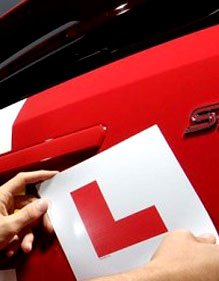|
Getting your Trinity Audio player ready...
|

“I was driving along N12 to Etwatwa. At offramp 444 an officer stopped me. He discovered my hired trailer tyres were worn out…”
In an official complaint lodged with Corruption Watch, this is how a reporter begins his account of an event over the Easter weekend. His is one of over 200 reports pertaining to alleged corruption in the traffic or transport sector. His encounter worsens with every line:
“…he asked for a bribe, I refused. He then asked for my license of which I gave him. He then proceeded to his patrol car and insisted on the bribe…” The traffic officer, alleges the reporter, went on to write out a ticket, all the while intimidating him and threatening to make him “pay” for his refusal to pay a bribe.
While the motorist admits to have been travelling at a higher speed than is permissible, he claims that the officer went out of his way to find faults in his vehicle, ultimately declaring the car unroadworthy.
“My car just passed test in November. It’s a car of 185 000km. The tyres are still good. He did not even check it out of anger for my bribe payment. He took it off the road…”
If a recent suggestion by transport authorities is anything to go by, motorists like the N12 reporter may find themselves in a situation where they have to comply with an order to be re-tested by a metro police officer on the spot.
“The quality of our drivers leaves much to be desired and to that extent we will ensure that driver training is upskilled and is of good standard,” said Transport Minister Dipuo Peters during a post-Easter media briefing last week on road accidents. One of the measures suggested by her department for monitoring driving skills among motorists was the re-testing of drivers when stopped by officers.
What then of motorists such as the N12 reporter, who was allegedly presented first with the option of a bribe before the legal alternative of a fine? The problem lies not only with motorists or traffic officers who break the law – it goes back further than that, to corrupt officials aiding and abetting unskilled drivers, who are disrespectful of the rules of the road, to get a license. Corrupt officials then knowingly take advantage of such drivers caught red-handed or, for that matter, drivers who have done nothing wrong.
Re-testing won’t solve the license corruption problem
In a statement responding to news reports of the proposed measure, non-profit Justice Project South Africa (JPSA) condemned the move. "…very few traffic officers, let alone metro police men or women, are qualified driving licence examiners and secondly, randomised re-testing is not the solution to the widespread systemic corruption in the issuing of driving licenses."
The organisation further accused the government of ignoring the long-standing signs of widespread corruption in the vehicle and driver licensing centres, which it says was first proven in the 1990s. Peters has also conceded that the focus in government’s road safety programme should include the eradication of corruption in licensing centres.
"Unapologetically we will decisively root out corruption at all driver learner testing centres as well as in our law enforcement fraternity," said Peters. "We will intensify our partnership with faith based organisations, civic organisations and formations, inculcating and engendering a culture of patriotism and responsibility on road safety education."
Government must get to the root of the problem
The N12 incident took place during the busy Easter weekend period, when traffic volumes increase substantially around the country, resulting in beefed up efforts by traffic safety authorities.
High traffic volumes caused by people travelling across the country can easily translate into higher-than-usual probabilities of motor accidents. The increased presence of traffic police on the main roads is a welcome relief for most motorists, given the escalated numbers of accidents.
If government does go ahead with the suggested measure of on-the-spot re-testing, it will be met with strong resistance.
“Should the Department of Transport and their state owned corporations decide to proceed with this ridiculous, corruption-enabling idea, JPSA will not hesitate to stand in its way and do everything possible to prevent this illegal practice from proceeding,” concluded the organisation.









